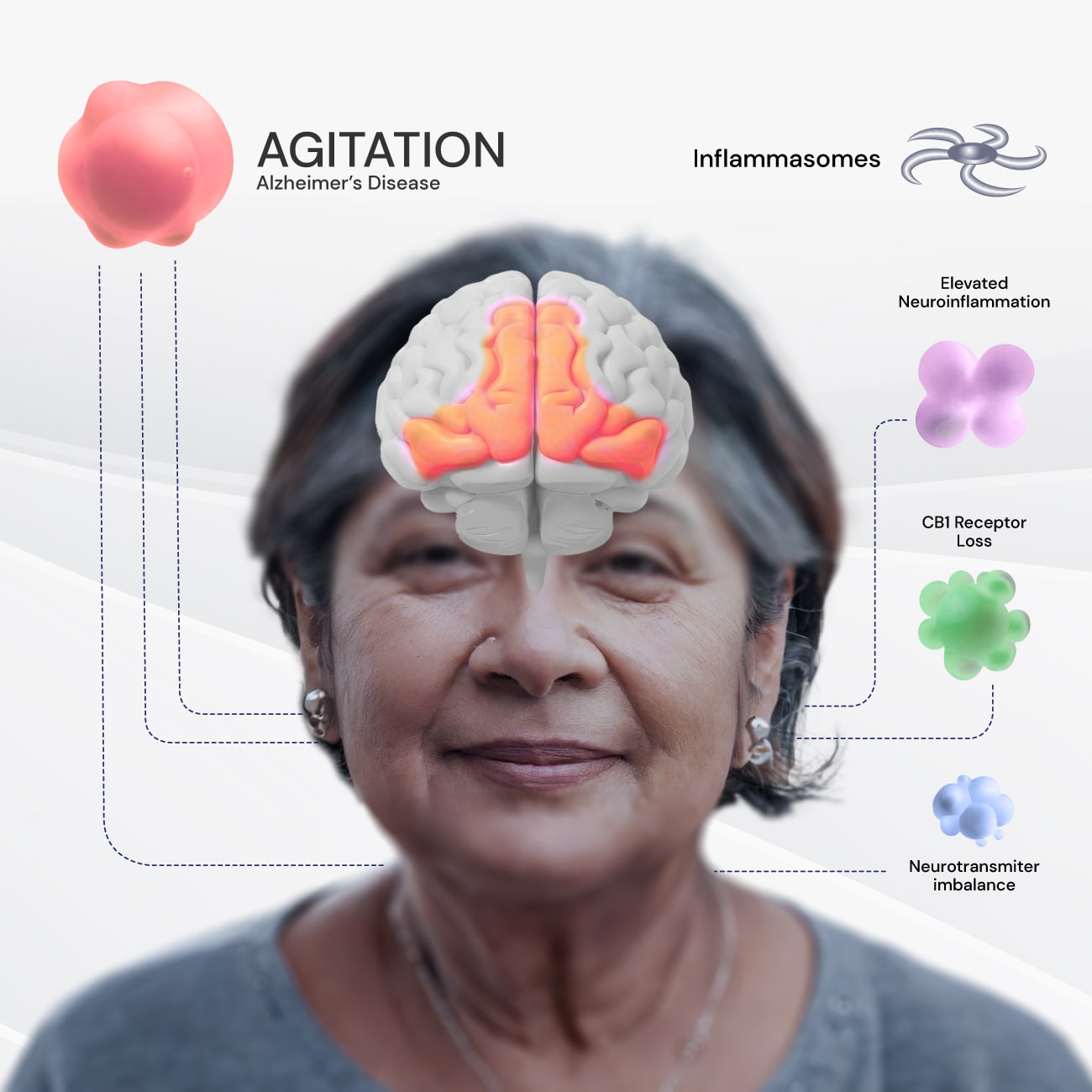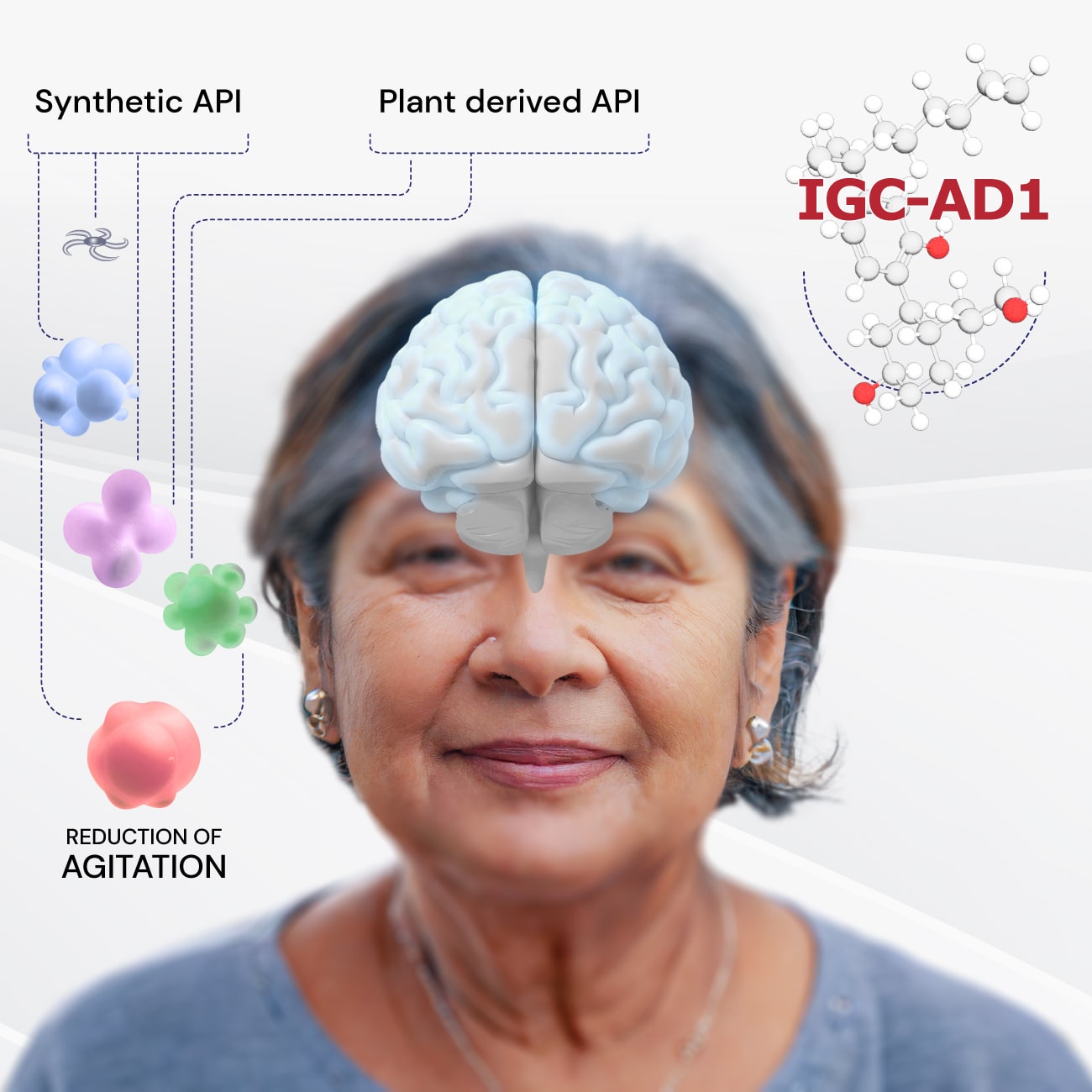IGC Pharma's novel approach to
Alzheimer's Disease
Reach out to learn more about IGC-AD1's Phase 2b trial for agitation in dementia due to Alzheimer's
Latests Press Release

IGC Pharma Welcomes Industry Leaders to Advisory Board, Supporting Alzheimer’s Innovation and AI-Driven Programs

IGC Pharma Expands CALMA Alzheimer’s Phase 2 Trial with Prestigious Research Site at Butler Hospital’s Memory and Aging Program

IGC Pharma Announces CALMA Phase 2 Trial Expansion with the Addition of Miami Jewish Health
Alzheimer's disease affects over 55 million individuals worldwide 1
In treating agitation, which affects 40-80% of individuals with Alzheimer’s disease2, IGC-AD1 has shown promising results.


Drag to discover more


Impacting Lives: Our Work Matters
With no known cure for Alzheimer’s disease, our drugs have the potential to change lives.
5th Leading
Cause of death among
Americans aged 65+3
Expected cost of Alzheimer’s and dementia by 2050 (in 2024 dollars) if no treatment or cure is found3

From the CEO's desk:
Vertical integration
Periodic updates and perspectives on various aspects of our business.



Science Spotlight
Welcome to “Science Spotlight” – your exclusive platform for insights into neurological disorders. Dr. Juan Manuel Orjuela and the IGC Pharma scientific team bring you in-depth articles on conditions such as Alzheimer’s disease, offering comprehensive updates on treatment and understanding their impact on individuals and families. Explore the roles of caregivers and dynamics within affected families. Stay informed with our latest article.


- Feature Article
Epilepsy and Depression
A common but lesser-known relation between two complex neurological conditions

Investing in the Future: Building Brighter Lives for Children
At IGC Pharma, we recognize our commitment to patients, caregivers, and their families, including children. Explore our programs dedicated to children.
- World Health Organization, Dementia, Key facts, 15 March 2023.
- Van der Mussele S et al. Agitation-associated behavioral symptoms in MCI and Alzheimer’s dementia. Aging Ment Health 2014;19(3):247–57.
- Alzheimer’s Association. 2024 Alzheimer’s Disease Facts and Figures. Alzheimers Dement 2024;20(5)

